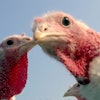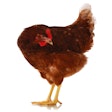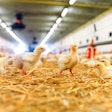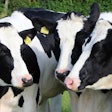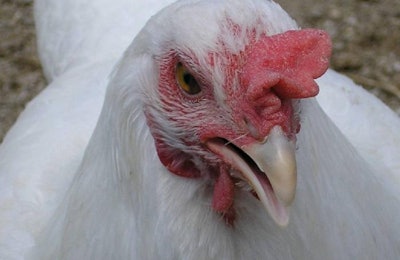
With China’s pork supply greatly reduced as a result of the African swine fever (ASF) outbreak, the Asian country’s poultry industry is expected to expand, according to the latest Rabobank Pork Quarterly report.
The report states that efforts to expand China’s poultry industry – including both broilers and ducks – are expected to drive 10 percent growth in poultry supplies for 2019.
At the same time, Rabobank stated it does not expect other animal proteins, such as beef, lamb, eggs or seafood to be significant contributors to offsetting the protein shortfall due to ASF. Increases in those proteins for the world’s most populous and largest pork consuming country are estimated to total 2 million metric tons.
“Mounting losses in the Chinese pig herd due to African swine fever are expected to drive a 16m metric ton deficit in pork supplies by year-end 2019,” Christine McCracken, Rabobank senior analyst – animal protein, stated in a press release. "Until China gains control of the disease and is able to rebuild, however, it will need to look to other protein sources to meet consumers’ needs. China will need to expand its production of other proteins and ratchet up imports in an effort to fill the gap. Ongoing trade disputes and infrastructure limitations, however, may limit China's options."
Demand for chicken has already increased due to pork shortages, the report stated, but the poultry industry does have the challenge consumers being wary to consume chicken due to a 76 percent year-over-year price increase.
Other challenges to the industry pointed out in the report include consumer preferences regarding chicken. The Chinese population tends to favor meat from yellow-feathered birds typically sold fresh at wet markets.
There is also apprehension about poultry consumption in China due to fears of highly pathogenic avian influenza, which remains a threat.
ASF has already caused the loss of as much as 35 percent of China’s pig herd, which is the largest in the world. The most recent ASF case reported to the World Organisation for Animal Health (OIE) involved a herd of 429 swine in the Sichuan province. According to that report, there were 78 deaths as a result of the disease, while the remaining 351 swine were euthanized and disposed of.
Within the past week, the OIE also received reports of ASF in Latvia, South Africa, Romania and Belgium.
View our continuing coverage of the African swine fever outbreak.


